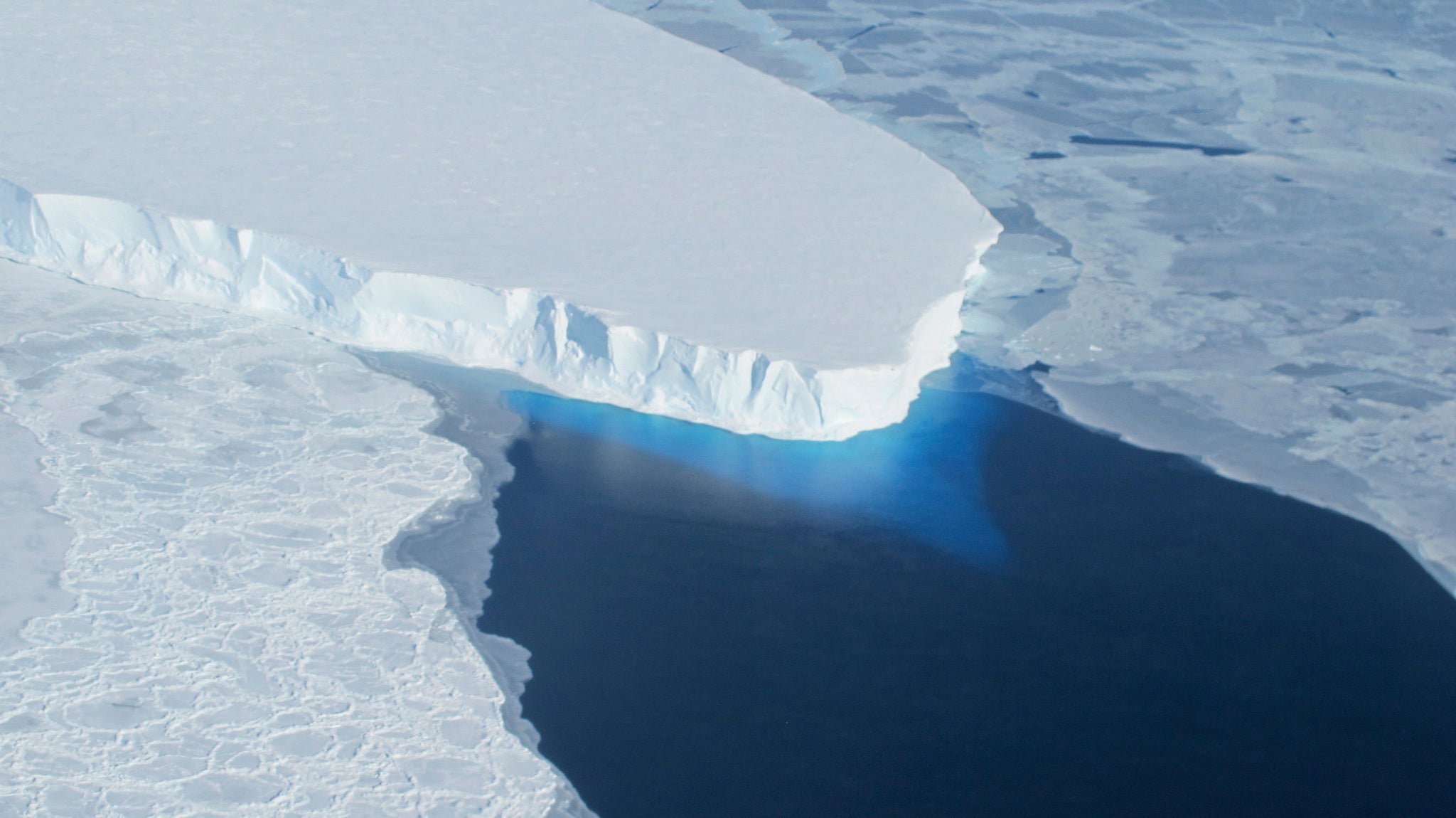'Unstoppable' glacial collapse in west Antarctica will lead to metres' rise in global sea levels

The collapse of the Western Antarctic Ice Sheet, which holds enough water to raise global sea levels by several metres, has already begun and is ‘unstoppable’, say two new reports.
Independent teams of researchers from Nasa and the University of Washington reached the same conclusion after using topographical maps, airborne radar and computer models to plot the course of the climate change-driven retreat.
They estimated that the fast-moving Thwaites Glacier will probably collapse into the sea somewhere in the next 200 to 1,000 years, raising sea levels by two feet.
This glacier acts as a dam for the rest of the western ice sheet and its disappearance could precipitate the collapse of a frozen mass large enough to raise sea levels by three to four metres.
"There's been a lot of speculation about the stability of marine ice sheets, and many scientists suspected that this kind of behaviour is under way," said Ian Joughin, a glaciologist at the University of Washington in Seattle, in a press release. "This study provides a more qualitative idea of the rates at which the collapse could take place."
Read more: East Antarctica melt could cause a global coastal destruction
A second study led by Nasa and the University of California declared the collapse of Thwaites and other glaciers had “passed the point of no return” and that glacial retreat would lead to a rise in sea levels of 1.2 metres.
"We finally have hit this point where we have enough observations to put this all together, to say, 'Wow, we really are in this state’,” Nasa glaciologist Tom Wagner told reporters during a conference.
The studies both suggest that sea-level rise will be greater than previously estimated by the United Nations’ IPCC report earlier this year. This forecast had not factored in the melting of the Western Antarctic Ice Sheet.
Scientists have warned about the dangers posed by the West Antarctic ice sheet for decades but say they had previously underestimated the pace of chance.
“Previously, when we saw thinning we didn’t necessarily know whether the glacier could slow down later, spontaneously or through some feedback,” said Joughin. “In our model simulations it looks like all the feedbacks tend to point toward it actually accelerating over time; there’s no real stabilizing mechanism we can see.”
Rising sea levels could threaten tens of millions of homes in coastal cities around the world and cause billions in financial damages.
Subscribe to Independent Premium to bookmark this article
Want to bookmark your favourite articles and stories to read or reference later? Start your Independent Premium subscription today.

Join our commenting forum
Join thought-provoking conversations, follow other Independent readers and see their replies